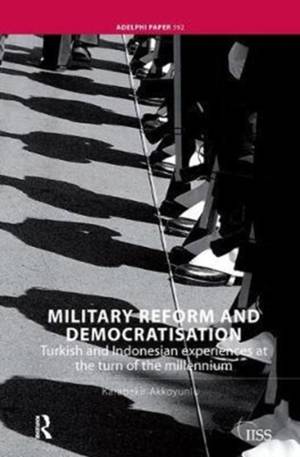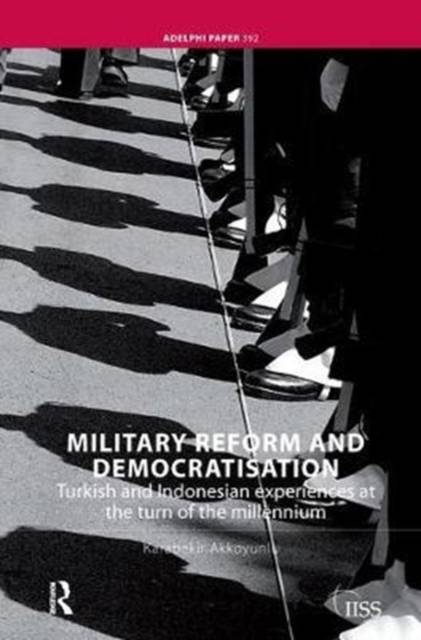
- Afhalen na 1 uur in een winkel met voorraad
- Gratis thuislevering in België vanaf € 30
- Ruim aanbod met 7 miljoen producten
- Afhalen na 1 uur in een winkel met voorraad
- Gratis thuislevering in België vanaf € 30
- Ruim aanbod met 7 miljoen producten
Military Reform and Democratisation
Turkish and Indonesian Experiences at the Turn of the Millennium
Karabekir AkkoyunluOmschrijving
There is no recipe for democratisation that can be readily applied to all countries. Every country presents unique factors that influence the fate of its democratic reforms, which must therefore be evaluated within their specific socio-political, cultural and historical context.
Building on this premise, this paper examines military reform and democratisation through the experiences of Turkey and Indonesia, two democratising countries with predominantly Muslim populations, secular regimes, and militaries that are deeply involved in politics.
The paper strives to explain why both the Turkish and Indonesian militaries, which have developed a sense of ownership over the state, may be wary of democratic change; how 'the people' perceive the military's traditional role in society; and in which direction societal and military attitudes towards democratic reform have been moving over the years.
In relating these domestic observations to various external factors, it seeks to identify the regional and global trends, events and actors that promote and obstruct the development of substantive democracy in each country, and to draw broader lessons for the study of democratisation and military reform.
Specificaties
Betrokkenen
- Auteur(s):
- Uitgeverij:
Inhoud
- Aantal bladzijden:
- 90
- Taal:
- Engels
- Reeks:
Eigenschappen
- Productcode (EAN):
- 9781138452718
- Verschijningsdatum:
- 28/06/2017
- Uitvoering:
- Hardcover
- Formaat:
- Genaaid
- Afmetingen:
- 156 mm x 233 mm
- Gewicht:
- 452 g

Alleen bij Standaard Boekhandel
Beoordelingen
We publiceren alleen reviews die voldoen aan de voorwaarden voor reviews. Bekijk onze voorwaarden voor reviews.











